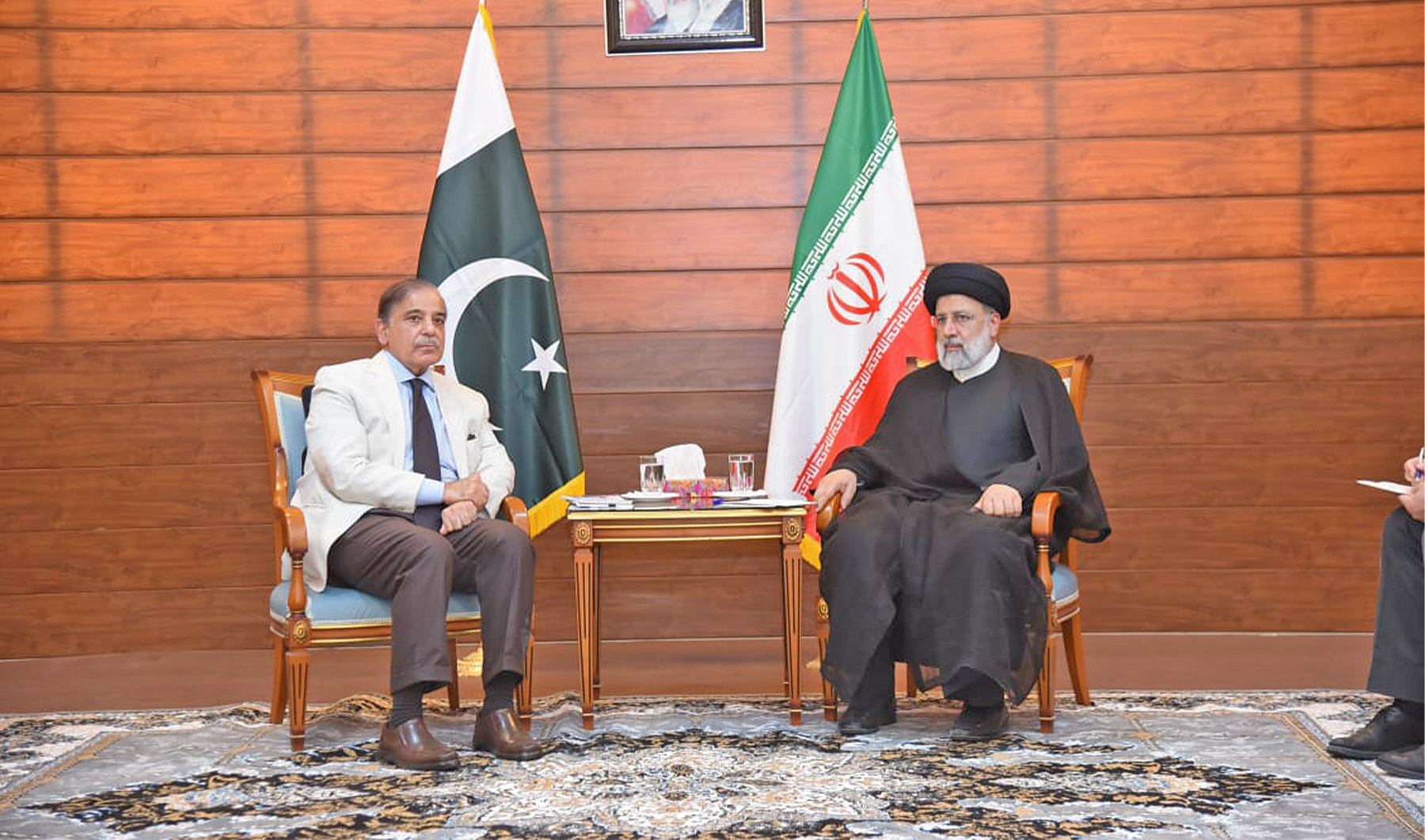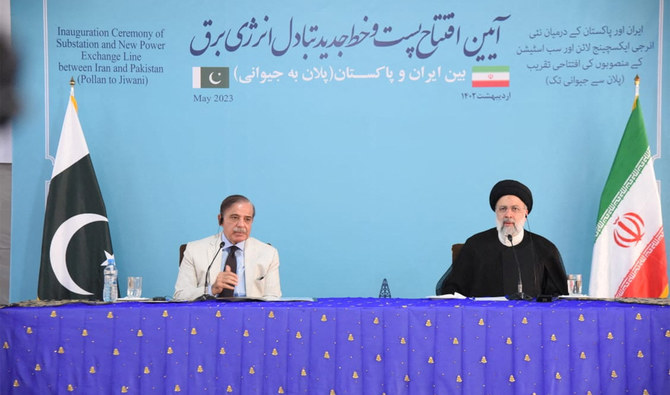ISLAMABAD: Pakistani Prime Minister Shehbaz Sharif and Iranian President Seyed Ebrahim Raisi jointly inaugurated a border market and an electricity transmission line on Thursday at a border crossing between the two neighboring countries.
Pakistan and Iran share a 959-kilometer frontier that begins at the Koh-i-Malik Salih mountain and ends at Gwadar Bay in the Gulf of Oman. The trade volume between the two countries currently stands at approximately $2 billion, and Iran exports around 100 megawatts (MW) of electricity to the areas of Pakistan that border it.
“The Mand-Pishin border sustenance marketplace will provide a thriving platform for increasing cross-border trade, fostering economic growth, and opening up new avenues of opportunity for local businesses,” said the Associated Press of Pakistan (APP) while reporting the development.
“This is one of the six border markets which will be constructed along the Pak-Iran common border,” it added.

Pakistan's Prime Minister Shehbaz Sharif, greets Iran's President Ebrahim Raisi during a Joint Inauguration of the Polan-Gabd Electricity Transmission Line, at Mand-Pishin border crossing point, in Pishin, Pakistan on May 18, 2023. (REUTERS)
The two leaders planted a sapling as a gesture of friendship and vowed to further strengthen bilateral relationship between their countries.
Pakistan’s foreign minister Bilawal Bhutto-Zardari, energy minister Khurram Dastagir Khan, information minister Marriyum Aurangzeb and senior officials belonging to the two countries were also present at the occasion.
The PM Office said on Wednesday Sharif and Raisi were also going to inaugurate Polan-Gabd Electricity Transmission Line to bring in an additional 100MW from Iran and help meet the energy needs of households and businesses in the border region.
According to Pakistan’s foreign office, the prime minister discussed “all aspects of bilateral relations and explore new areas of cooperation” during his meeting with the Iranian president.
“The border markets are envisaged along the Pakistan-Iran border to facilitate the people on both sides of the border with enhanced cross-border trade, fostering economic growth and opening up of new avenues of opportunity for local businesses,” it said in a statement on Thursday.

Pakistan Prime Minister Shehbaz Sharif (left) meets Iranian President Seyed Ebrahim Raisi at a border crossing between the two neighboring countries on May 18, 2023. (Government of Pakistan)
The foreign office informed the electricity transmission line had been developed under an agreement signed between the two countries last year in July.
Earlier this month, Vahid Jalalzadeh, chairman of the Commission of National Security and Foreign Policy of Iran, met Pakistani Commerce Minister Syed Naveed Qamar and discussed the opening of border markets.
Jalalzadeh had said the current trade volume of $2 billion with Pakistan was “insufficient” and called for solid steps to increase it to a multibillion-dollar level.
“Federal Minister for Commerce echoed this sentiment and emphasized the importance of opening new border markets and implementing a barter trade system to facilitate greater commercial exchange,” the commerce ministry said in a statement after the meeting. “These measures, he believed, would contribute to a significant surge in trade volume between Iran and Pakistan.”
















